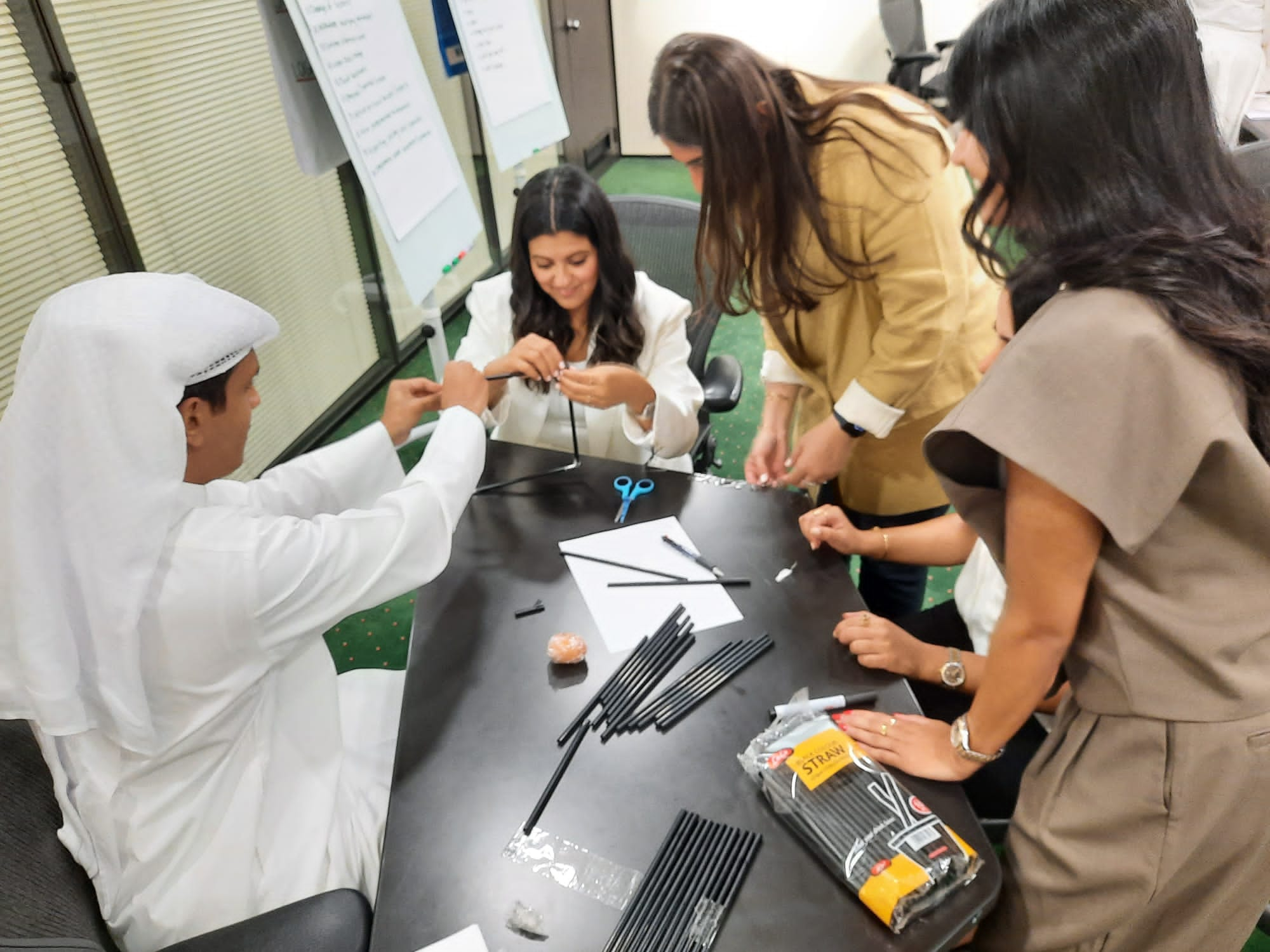Facilitation Skills Training
For Organisations Only
In-house training
- Face-to-face (flexible structure <15 people)
- Live virtual (flexible structure <15 people)
- With or without actors
- Fully customisable
Facilitation Skills – 2 Days
This two-day programme can be delivered either as live virtual, or in person. The highly participative and practical design provides a mix of learning and practical application. The course includes a lot of practice sessions, with attendees receiving feedback from the course facilitator. For this reason, cohort sizes are restricted to a maximum of 12 attendees.
The content is suitable for those who must facilitate as part of their roles, for example HR specialists, managers, leaders, sales teams, trainers, etc. The content design is highly participative and interactive with attendees involved with learning activity, group discussions, questionnaires and individual reflection and application.
Course Content
Day One: Facilitation Skills
By the end of day one, delegates will have covered:
Introduction to Facilitation
- Understand facilitation and its differences from training
Adult Learning Principles
- Explore theoretical and empirical studies on adult learning
- Learn how facilitative learning fits into adult development
Applications of Facilitation
- Discover uses for facilitation in meetings, group discussions, training, and sales meetings
Essential Communication Skills for Facilitators
- Review key communication skills for effective facilitation
- Explore questioning techniques, listening, and summarizing in facilitated activities
Advanced Facilitation and Questioning Techniques
- Enhance questioning for improved facilitation and intervention management
- Participate in a practical activity to prepare questions
Review and Feedback
- Reflect on the day’s learning and receive feedback for skill development
Day Two: Applying New Skills
By the end of day two, delegates will have:
Group Dynamics:
- Understanding how group dynamics can affect facilitative training and how creating the right environment can lead to effective learning outcomes. The importance of being inclusive within any meeting or learning session
Differences in conducting facilitation in person / live virtual
- Understanding the practical differences of facilitating in person, or live virtual delivery. Knowing the pitfalls of facilitating online
Practical Activity
Each attendee has the opportunity to facilitate a discussion and will receive practical and constructive feedback from the programme facilitator, as well as other attendees
- Review of the programme learning
- Thinking forward and action plans
Let's get started...
Contact us with your availability for a call and we will send you a proposal, programme outline and quotation for your learning and development project.
Use Actors in Your Training
Through clever script writing, goose-bump inducing delivery and professional facilitation we can bring so much to life. We stimulate emotion, penetrate the long-term memory and create lasting change.
When we use live drama, we are able to have the actors play out the scenario and then be hot seated for the audience to ask them questions whilst they remain in character. Hot seating works so well because actors work with a pre-rehearsed backstory, so they are able to respond in character. They progressively reveal unexpected elements of their story that will not have previously been told. It can bust assumptions that the audience might have made based on the scenario (situation) but not fully understanding the impact at first sight.
Using actors in this programme enables us to bring to:
- See a typical situation from a different perspective
- Give attendees a chance to challenge the actors whilst they are still in character
- Demonstrate that things aren’t always what they seem at first glance
- Provide delegates with an opportunity to test out alternative ways of approaching different situations
- Create an experience which stays in the long-term memory
Case Study

Kuwait Fund for Arab Economic Development
Upskilling engineering, architectural and bio-medical graduates“I want to take the chance to thank you again for this wonderful course, it’s been my absolute pleasure and honour to be trained by you. I honestly learned a lot during this week, I hope we will keep in touch.”
READ CASE STUDY